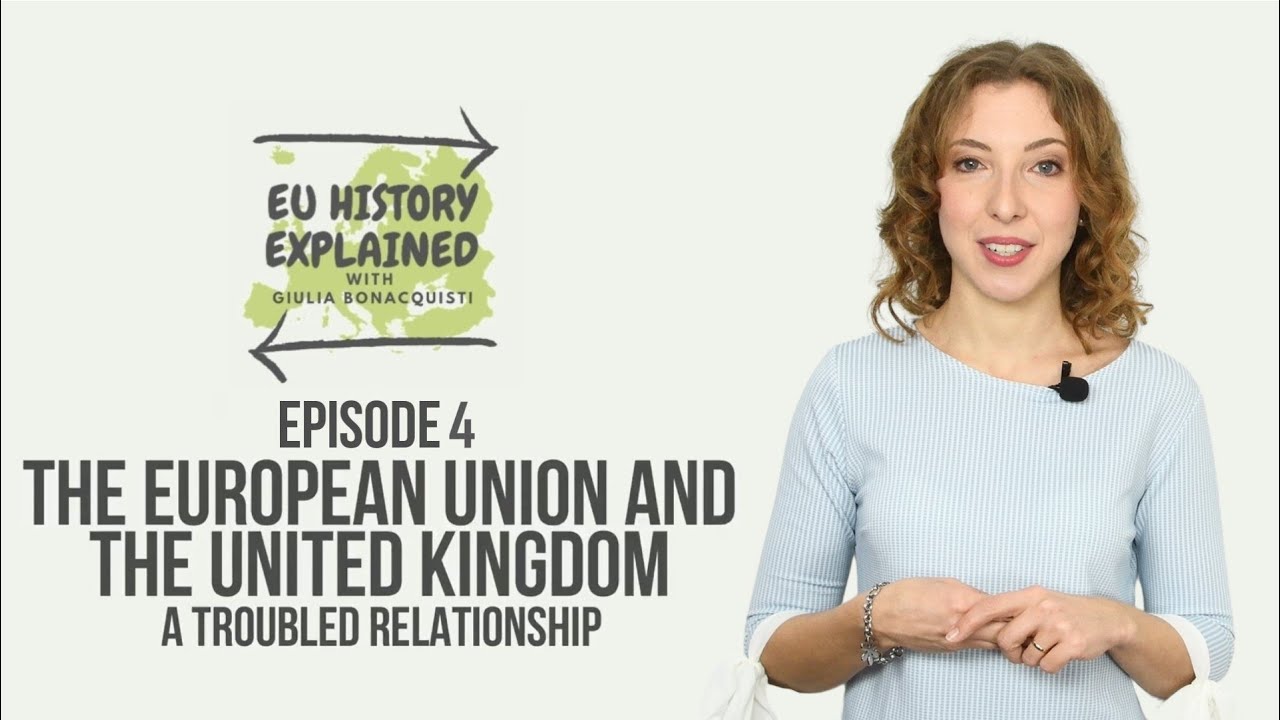Who Broke Britain? Part 2: Brexit | If You’re Listening
Summary
TLDRThis transcript explores the chaos surrounding Brexit, focusing on the pivotal moments in UK politics leading to its decision to leave the European Union. It delves into the personal and political struggles of David Cameron, his bet on a referendum, and the turbulent years of uncertainty that followed. From the rise of nationalist sentiments to the disinformation campaigns that fueled the Leave movement, the script highlights the complex dynamics of the referendum, its unexpected results, and the lasting impact on British politics, culminating in the country’s departure from the EU amid a global pandemic.
Takeaways
- 😀 British prime ministers have historically lived above door 11 Downing Street, not 10, despite the iconic '10' label.
- 😀 Downing Street is more of a narrow alley than a traditional street, with doors marked 10, 11, and 12 leading into the same large complex.
- 😀 Key moments in British political history, such as resignations and announcements, often take place outside the famous 10 Downing Street door.
- 😀 David Cameron's resignation in 2016 was marked by him singing a song as he exited, a sign of his relief after the Brexit referendum disaster.
- 😀 Cameron's resignation followed the 2016 Brexit vote, a decision that caused division and chaos within the UK and Europe.
- 😀 The UK's complex relationship with the European Union dates back to the 1960s when Britain first considered joining the European Economic Community (EEC).
- 😀 Australia once viewed Britain's potential EU membership with frustration, as it meant Britain was shifting away from its former empire towards Europe.
- 😀 Britain's economy and trade policies shifted throughout the 20th century, eventually leading to Britain's decision to join the EEC in 1973.
- 😀 Despite early support for the European Economic Community, Britain's relationship with the EU became increasingly contentious, especially regarding trade, jobs, and national identity.
- 😀 In 2013, David Cameron gambled on a referendum to decide Britain's future in the EU, confident of a 'remain' victory but unaware of the strength of the 'leave' campaign.
- 😀 The Brexit referendum campaign saw unexpected developments, including the rise of nationalism, the influence of leaders like Boris Johnson, and the role of disinformation through social media.
Q & A
Where do British Prime Ministers live?
-While most people assume British Prime Ministers live at 10 Downing Street, they actually live above door number 11, as both 10 and 11 Downing Street are part of the same massive complex.
What is the significance of the black door at 10 Downing Street?
-The iconic black door at 10 Downing Street is where Prime Ministers often make major announcements, including resignations or appointments, despite the larger and more functional complex behind it.
Why did David Cameron seem so relieved to resign as Prime Minister in 2016?
-David Cameron was thrilled to resign because his gamble with the Brexit referendum had failed, leading to the UK's vote to leave the European Union. He was relieved to no longer bear the responsibility for the mess.
What led to Cameron's resignation in 2016?
-David Cameron resigned after the Brexit referendum in 2016, where the UK voted to leave the European Union, a decision he had bet his political future on and failed to secure.
What was the state of Britain's relationship with Europe before the 1970s?
-Before the 1970s, Britain maintained strong trade relationships with its former colonies, which provided cheaper labor, land, and resources compared to Europe.
Why did the UK decide to join the European Economic Community (EEC) in the 1970s?
-The UK joined the EEC in the 1970s to maintain competitive trade relations with Europe without tariffs or taxes, as its former colonies began demanding better trade terms.
How did Australians react to Britain's potential EU membership in the 1960s?
-Australians were angry at Britain’s potential membership in the European Economic Community (EEC) because they felt betrayed by the shift away from the British Empire to Europe, a move that affected their trade with the UK.
What was the result of the 1975 referendum on the UK's membership in the EEC?
-In the 1975 referendum, the majority of British voters chose to remain in the European Economic Community (EEC), with the electorate voting two-to-one in favor of staying.
What were some reasons people wanted to leave the European Union during the Brexit campaign?
-Reasons for wanting to leave the EU included dissatisfaction with EU regulations, loss of manufacturing jobs, rising nationalism and anti-immigrant sentiments, and discontent with the UK's relationship with Europe.
How did Boris Johnson and Nigel Farage contribute to the success of the 'Leave' campaign?
-Boris Johnson and Nigel Farage played key roles in the 'Leave' campaign by being charismatic leaders, promoting anti-EU sentiment, and successfully tapping into nationalism and dissatisfaction with immigration policies.
Outlines

This section is available to paid users only. Please upgrade to access this part.
Upgrade NowMindmap

This section is available to paid users only. Please upgrade to access this part.
Upgrade NowKeywords

This section is available to paid users only. Please upgrade to access this part.
Upgrade NowHighlights

This section is available to paid users only. Please upgrade to access this part.
Upgrade NowTranscripts

This section is available to paid users only. Please upgrade to access this part.
Upgrade NowBrowse More Related Video

The European Union & the United Kingdom: A Troubled Relationship | EU History Explained Episode 4

Brexit dan Dampaknya

5 minutes pour décrypter le Brexit

The Origins of European Integration, PART 2 | EU History Explained Episode 2

Daniel Hannan on idiocy of EU's Common Agricultural Policy 12Oct11

How Brexit could create a crisis at the Irish border
5.0 / 5 (0 votes)